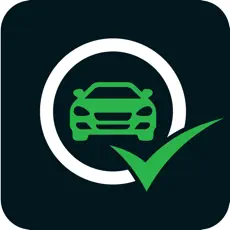When buying a used car, knowing its history is essential to avoid costly mistakes. Vehicle history reports provide details about accidents, title issues, and previous owners. AutoCheck and Carfax are two of the most popular services for checking vehicle history, but which one is more reliable? Let’s compare them based on accuracy, data sources, and pricing to help you make an informed choice.
What is AutoCheck?
AutoCheck is a vehicle history reporting service owned by Experian. It provides detailed reports on used cars, including accident history, title records, odometer readings, and more. One of AutoCheck’s unique features is its AutoCheck Score, which rates a vehicle’s history based on various factors, allowing buyers to compare different cars easily.
Pros of AutoCheck:
- More Comprehensive Auction Data: AutoCheck has strong ties with auction houses, making it a great option for checking vehicles sold through auctions.
- AutoCheck Score: Helps buyers compare vehicles quickly.
- Unlimited Reports with Subscription: AutoCheck offers a subscription-based model, making it cost-effective for those checking multiple cars.
Cons of AutoCheck:
- Limited Accident Data: Some users report that AutoCheck may not always include minor accident details.
- Less Data from Independent Repair Shops: Compared to Carfax, AutoCheck has fewer records from independent mechanics and body shops.
What is Carfax?
Carfax is a widely used vehicle history report service that provides detailed records from multiple sources, including DMVs, insurance companies, and repair shops. Carfax reports often include service records, ownership history, accident reports, and manufacturer recalls.
Pros of Carfax:
- Strong Reputation: Carfax has been around for a long time and is trusted by many buyers and dealerships.
- More Detailed Accident Reports: Carfax reports often include police accident reports and minor fender benders.
- Service Records Included: Carfax collects data from dealerships and independent repair shops, making it useful for tracking maintenance history.
Cons of Carfax:
- Expensive Reports: Carfax charges per report, which can be costly if you’re checking multiple vehicles.
- No Scoring System: Unlike AutoCheck, Carfax does not provide an overall vehicle score, making it harder to compare multiple vehicles at a glance.
AutoCheck vs Carfax: Head-to-Head Comparison
| Feature | AutoCheck | Carfax |
|---|---|---|
| Data Sources | Auction houses, DMVs, insurance records | DMVs, police reports, repair shops, insurance companies |
| Accident History | Limited minor accident reports | More detailed accident history |
| Pricing | Subscription model available | Pay per report |
| Vehicle Score | Yes, AutoCheck Score | No |
| Service Records | Limited | Extensive |
| Best For | Dealerships and frequent buyers | Individual car buyers looking for full service history |
Which One Should You Choose?
- If you are a dealership or checking multiple cars, AutoCheck is a more cost-effective choice because of its unlimited report option and auction data.
- If you are an individual buyer looking for detailed accident and service history, Carfax is better suited because it includes reports from repair shops and police records.
Is There an Alternative?
If you’re looking for a reliable, cost-effective alternative, VINAutoChecker provides a free way to check USA vehicle history. With detailed VIN lookup services, VINAutoChecker pulls data from various sources to help buyers make informed decisions without paying high fees. Whether you need a quick check before buying or want to compare multiple vehicles, VINAutoChecker offers a practical solution.
Final Verdict
Both AutoCheck and Carfax have their strengths, and the best choice depends on your needs. While AutoCheck is more budget-friendly for frequent users, Carfax provides a more detailed history for individual buyers. If you’re looking for an affordable option, VINAutoChecker is worth considering as a free and effective way to check vehicle history in the USA before making a purchase decision.
